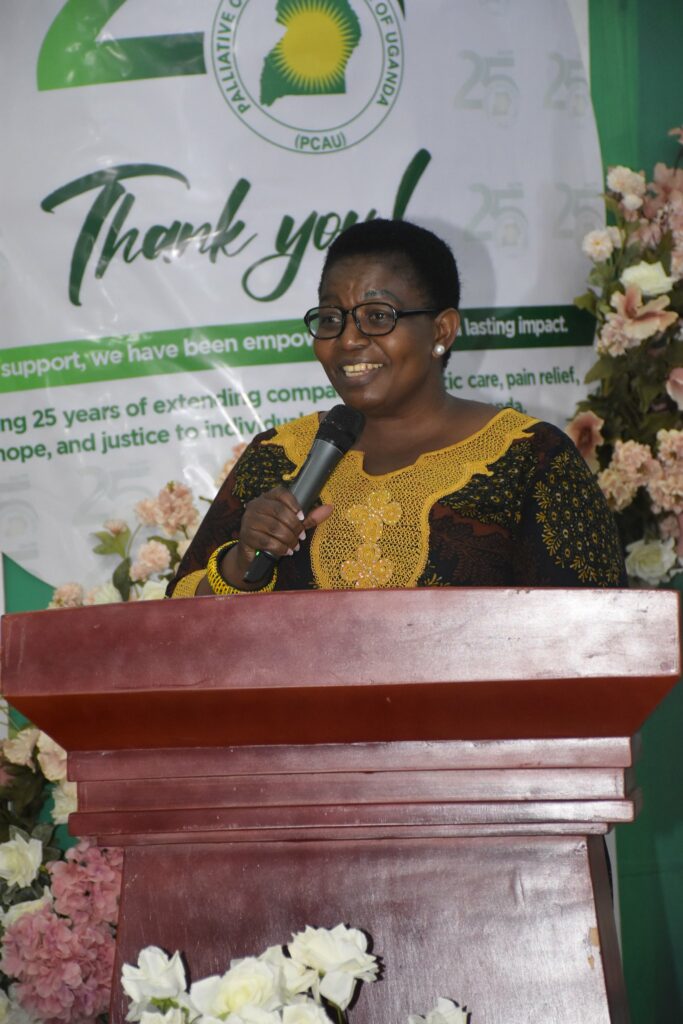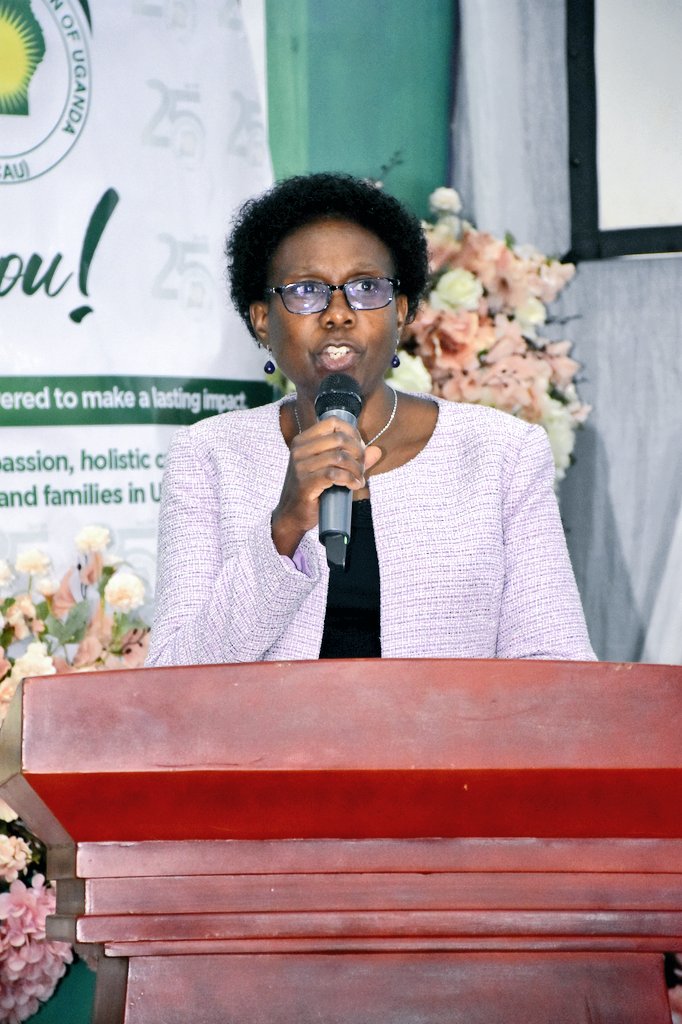
 Mama FM
Mama FM

 Mama FM
Mama FM
7 December 2024, 11:14 am
By Byamukama Alozious
The Palliative Care Association of Uganda (PCAU) marked 25 years of dedicated service to Ugandans with a grand event at Silver Springs Hotel in Bugolobi. This significant milestone was celebrated by dignitaries, including the Minister of Health, Dr. Jane Ruth Aceng, and the Minister of General Duties in the Office of the Prime Minister, Justine Kasule Lumumba, who represented the Prime Minister.

Since its inception in 1999, the PCAU has achieved remarkable milestones in expanding access to palliative care services across Uganda. One of the key achievements is the issuance of Instrument No. 424 by the Ministry of Health, which legally permits trained nurses and clinical officers to prescribe oral liquid morphine for pain management.
In collaboration with USAID, the association also led the development of a national palliative care training curriculum for healthcare workers. These efforts have strengthened the capacity of health professionals to provide essential care to patients with chronic and life-threatening illnesses.

The PCAU has established 17 accredited home care programmes for hospices and, by 2010, had enabled 227 health facilities across the country to offer palliative care. The organisation has expanded to include over 10 regional branches, 30 member organisations, and 1,550 individual members. Furthermore, partnerships with humanitarian organisations such as the Uganda Network on Law, Ethics, and HIV (UGANET) have extended PCAU’s reach, ensuring that more people benefit from their right to quality palliative care services.
Despite these achievements, challenges remain. Uganda still lacks a stand-alone national palliative care strategy, which hampers the comprehensive rollout of these services. Limited public awareness has led to widespread misconceptions that palliative care is only for the elderly with chronic illnesses such as cancer and tuberculosis, or for people nearing death. Additionally, the sector faces low funding, insufficient integration of palliative care into other healthcare services, and gaps in coverage, with at least 39 districts still lacking access. These underserved areas include Bushenyi, Kamwenge, Abim, Kotido, Budaka, Luuka, Buvuma, Kassanda, and others.
Palliative care provides hope and support for individuals suffering from chronic illnesses such as cancer, tuberculosis, and HIV. Beyond managing pain, it offers emotional support, referrals, and guidance to patients and their families. For many, it is a beacon of compassion and dignity during the most challenging times of their lives.
During the celebration, the Minister of Health, Dr Jane Ruth Aceng, commended PCAU’s efforts and revealed that palliative care now has a dedicated division within the Ministry of Health. She reassured attendees of the government’s commitment to rolling out these services in all districts to address the existing disparities. Minister Lumumba also praised PCAU, calling palliative care the cornerstone of Uganda’s healthcare system. She emphasised the importance of integrating these services to ensure that no Ugandan is left behind in receiving compassionate and dignified care.

As PCAU marks 25 years of impactful work, the association remains a symbol of hope for thousands of Ugandans, reflecting on both its successes and the challenges that lie ahead in achieving universal access to palliative care.